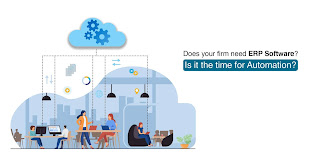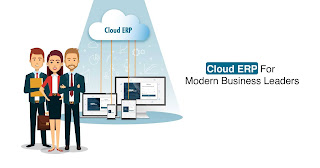Does your firm need ERP software? Is it the time for automation?

There has been a lot of buzz around ERP or cloud ERP in recent times. ERP Vendors in India and across the globe are reaching out to companies to convince them to buy ERP. Tougher competition within the marketplace is generating the necessity to higher optimization of resources, improve profit and keep customers happy. Enterprise Resource designing (ERP) is a system that, once enforced, ties along and automates variety of processes among a given enterprise. ERPs are typically integration of smaller modules. Every module is to credit for finishing a specific task among the organization, like managing finances, tax records, hour work, consumer relationships, offer chains, and more. Once implemented properly, an honest ERP can: Reduce the time spent for finishing routine tasks. Improve the general progress across departments. Present a more robust summary of all company data Improve the data availability significantly Reduce the data turnaround time Improve turnover and pro...


